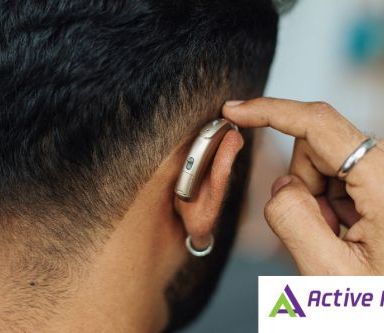
As over-the-counter (OTC) hearing aids have become available to the general public, it’s important to know how they differ from the hearing aids you’d get from an ear specialist. The FDA has recently approved the sale of OTC hearing aids directly to consumers. They resemble the ones you’d get from an audiologist but do differ from prescription versions in design and price.
You now have two options for hearing aids in Omaha, NE, the first being getting them from your local hearing specialist and the second is getting them online or from a specific store. The hearing aids your audiologist prescribes can tackle all types of hearing loss, whereas over-the-counter hearing aids will help with mild to moderate hearing loss.
We wanted to give you more information on OTC hearing aids, how they differ from those prescribed and which may be best for you!
What are OTC hearing aids?
If you’re experiencing symptoms of hearing loss such as asking people to repeat themselves, are having trouble hearing in noisy environments or find yourself turning the TV volume up louder than the average person, it’s always good to see an audiologist for a hearing consultation.
Think of when you go to the doctor with a sore throat, but you learn it’s caused by a virus and there isn’t a prescription antibiotic that will help. They might recommend an OTC product to relieve symptoms. In the same way, an audiologist will be able to determine the degree of your hearing loss and what treatment plan works best for you. If your hearing loss ranges between 20 and 60 decibels, they might recommend OTC hearing aids.
How are OTC hearing aids different from prescribed hearing aids?
The main difference is that OTC hearing aids are less expensive and you can get them in-store or online without ever having a doctor’s appointment. We believe that everyone has a right to accessible, affordable help for their hearing. We do recommend getting a baseline hearing test prior to using an OTC product to make sure there isn’t a problem that requires medical treatment or prescription devices, just so you don’t spend money on something that won’t work.
Another main difference between them is that OTC hearing aids are designed for those with mild to moderate hearing loss, so if you have a larger degree of hearing difficulty you may find them unhelpful. With OTC hearing aids, you don’t receive a hearing test or fitting by an audiologist, which can be helpful when you need them adjusted, troubleshooted or repaired.
Which is best for you?
With all of that being said, there are benefits to OTC hearing aids. Those who are experiencing mild to moderate hearing loss can find relief through using them, and for a cheaper price too. The best way to know which is actually best for you is to see an audiologist so you know your degree of hearing loss and can determine if they’ll work, or if you need a stronger treatment plan.
We are aware that some are unable to afford a doctor’s appointment and may opt to spend a little money and see if they can find relief with OTC hearing aids. Hearing loss affects the quality of life for millions of Americans, and untreated hearing loss only makes things worse. If you’re experiencing hearing loss, it’s important to do what you can to get the help you need.
Where can you get hearing aids in Omaha, NE?
We’re here to help, and we value your success above all. We provide personalized care and make sure we consider your lifestyle and listen to your budgeting needs. If you believe hearing aids would help you, consider getting a hearing check from a local ear specialist before buying hearing aids in Omaha, NE. Feel free to contact us with any comments or questions!






Comments